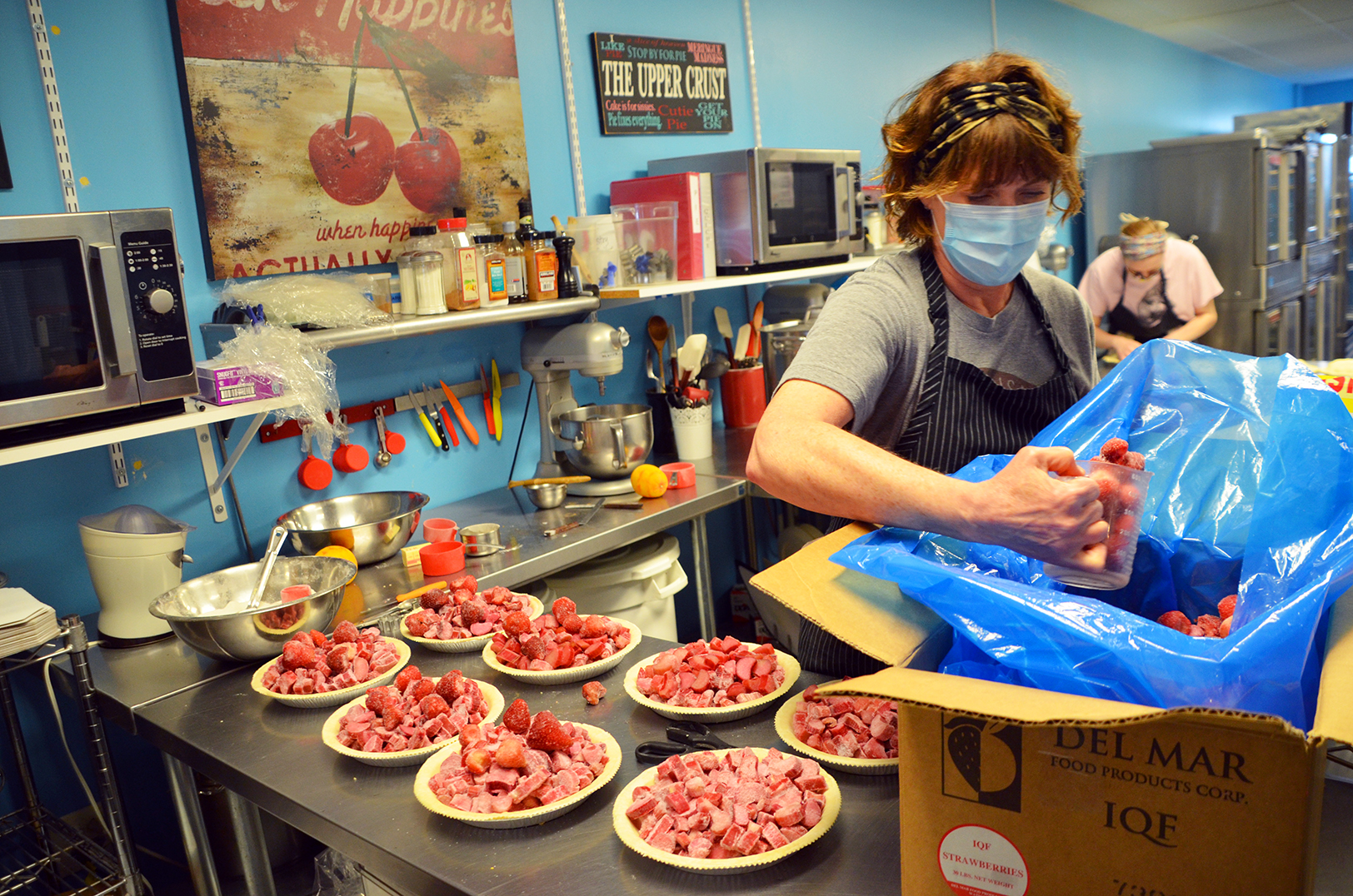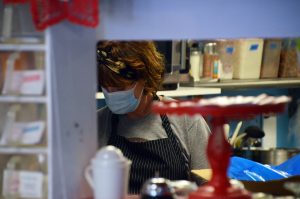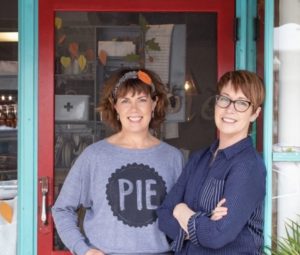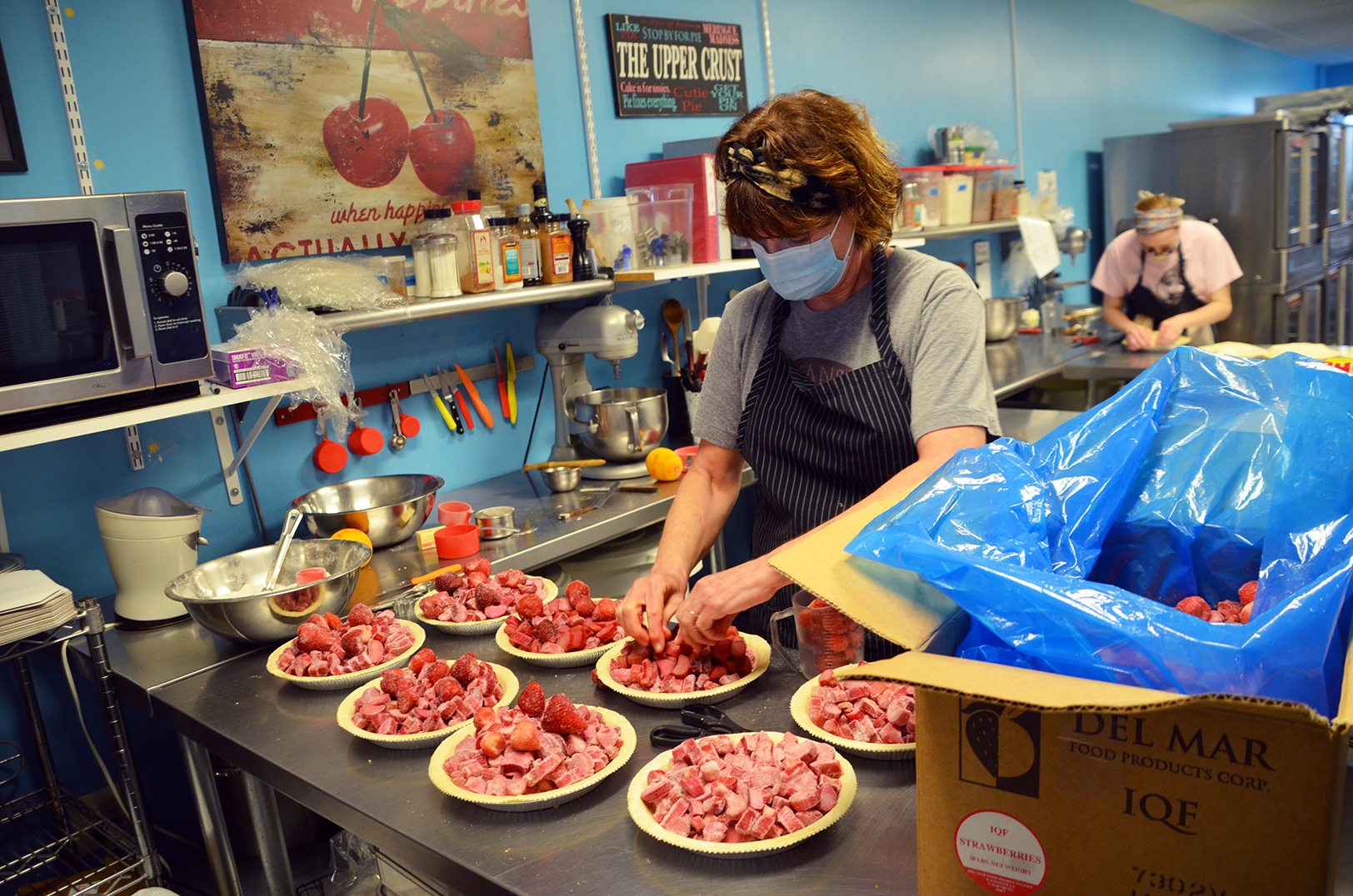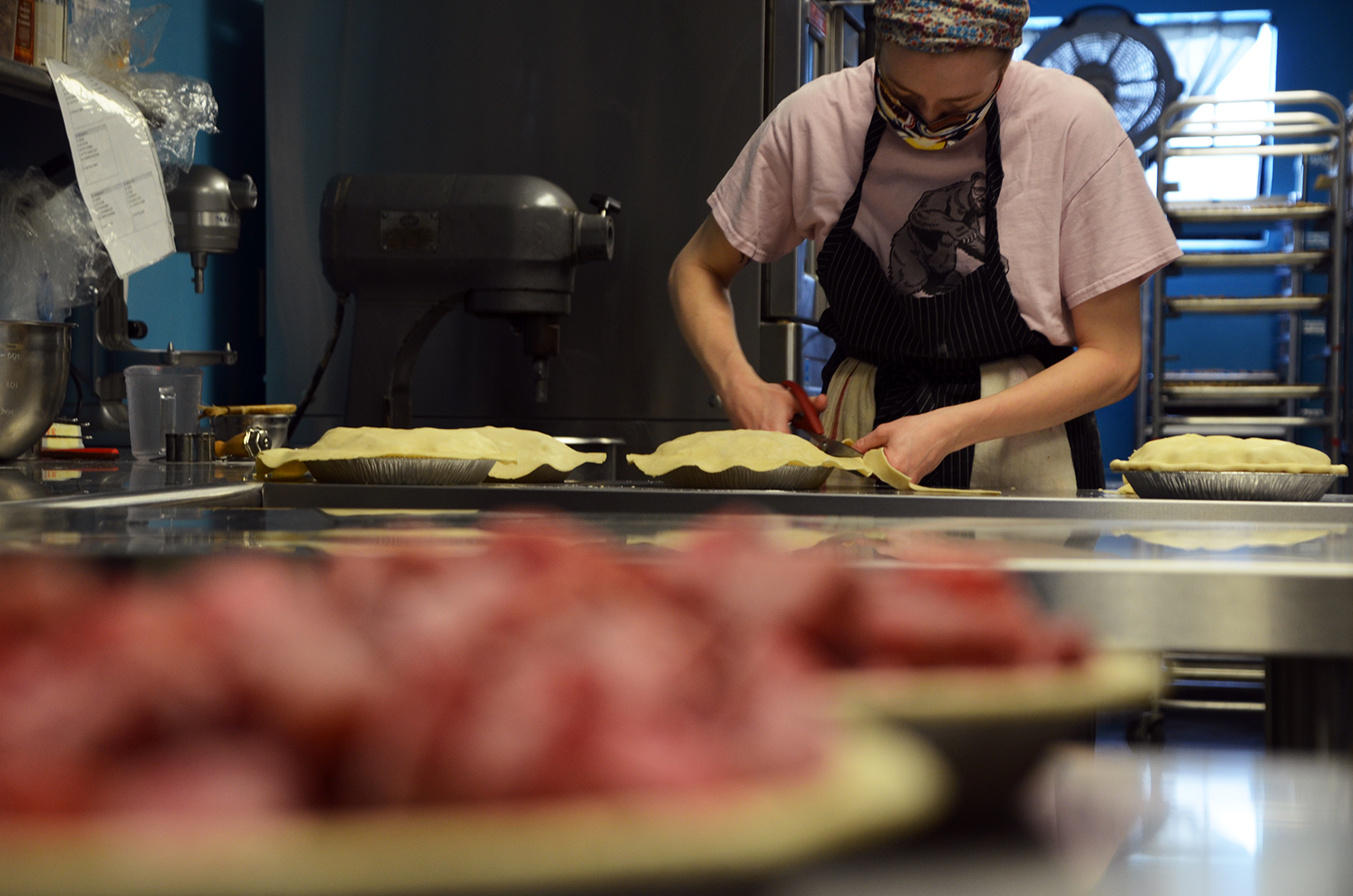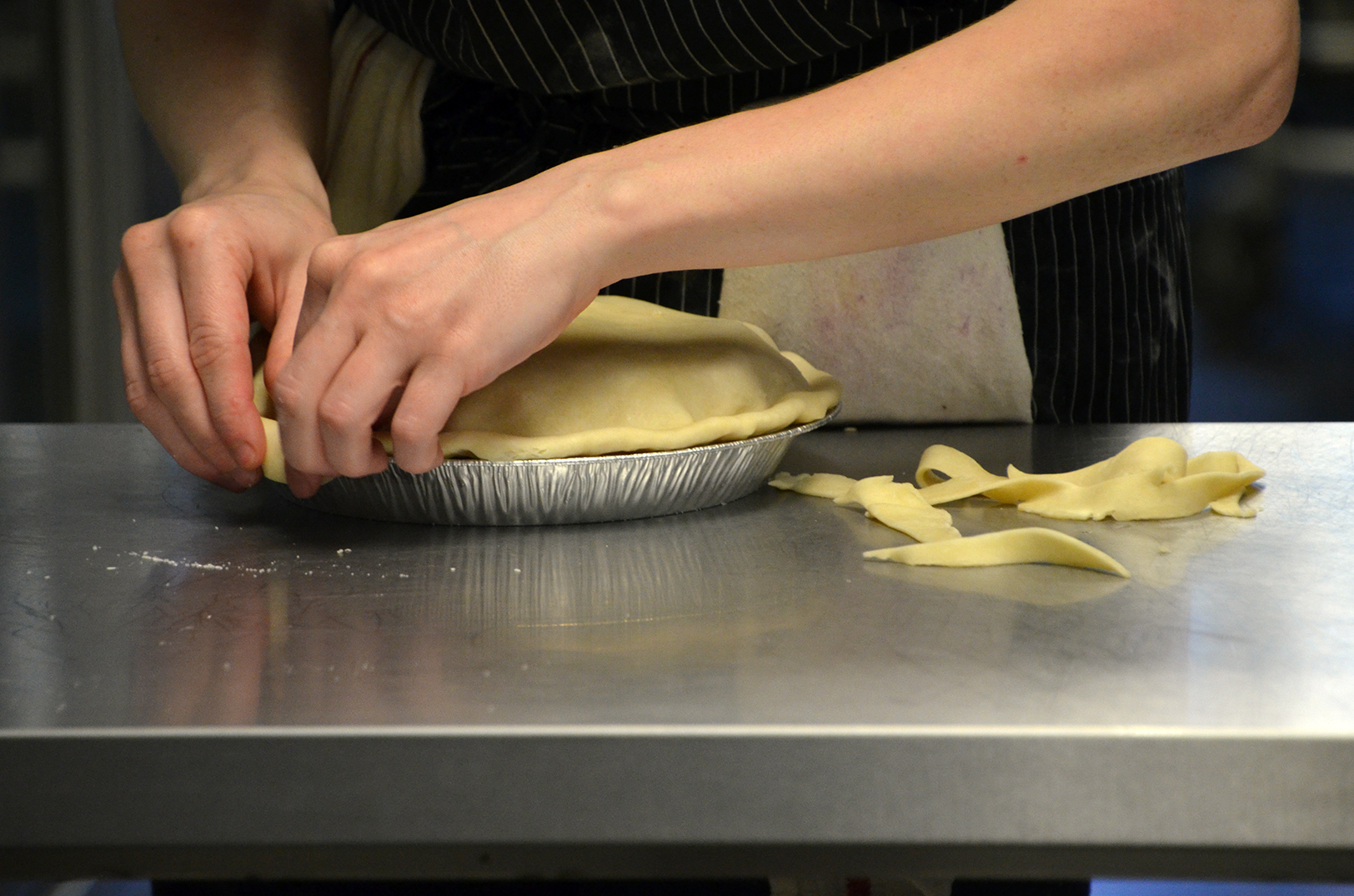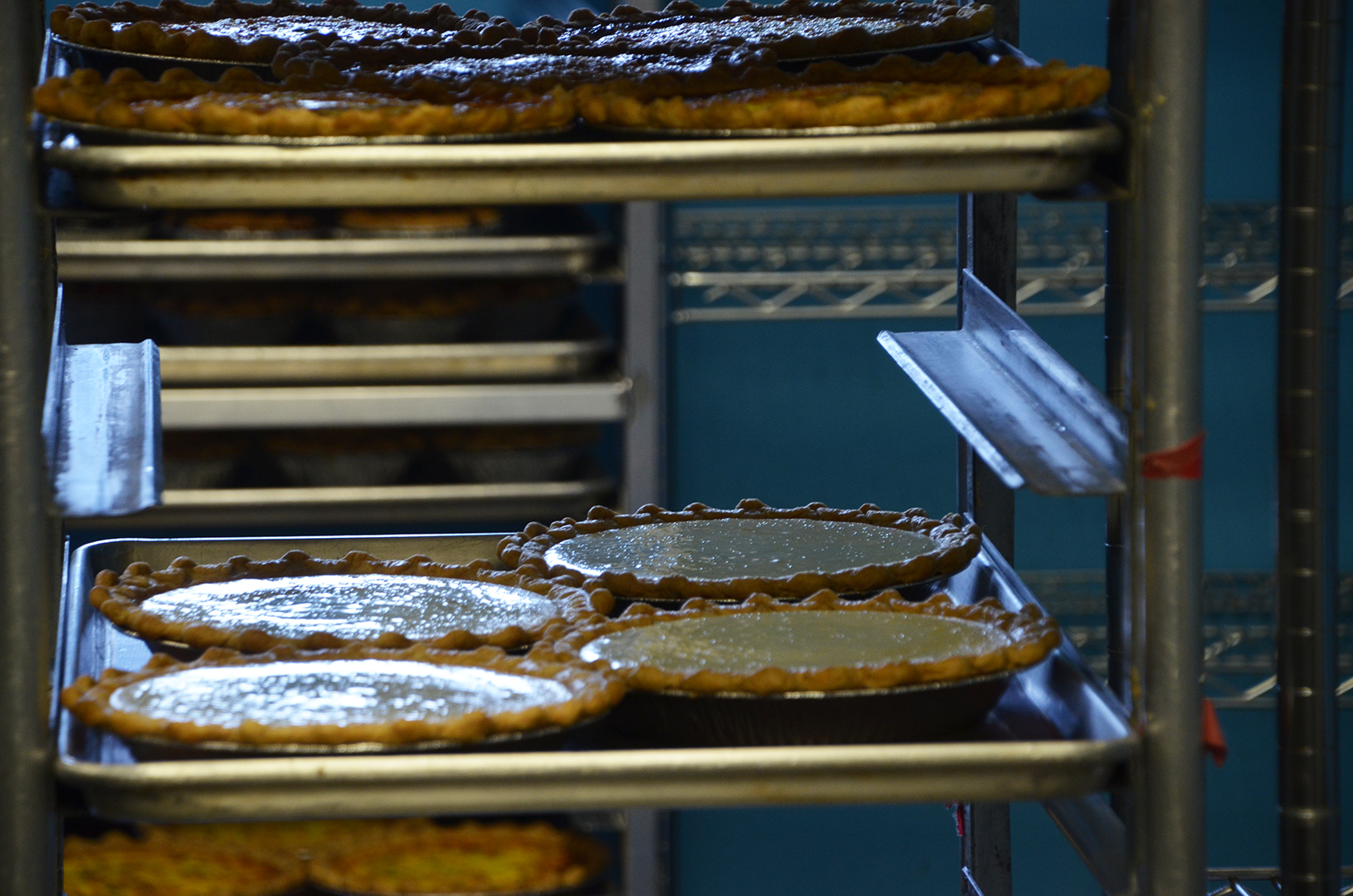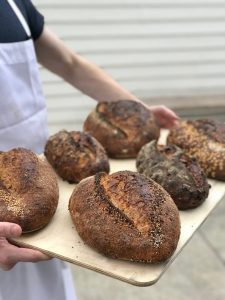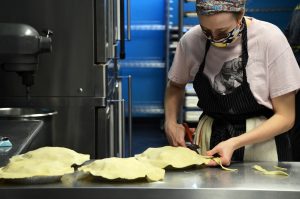Editor’s note: The following is part of Startland News’ ongoing coverage of the impact of Coronavirus (COVID-19) on Kansas City’s entrepreneur community, as well as how innovation is helping to drive a new normal in the ecosystem. Click here to follow related stories as they develop.
Behind a rustic “closed” sign, empty display cases and a lonely pie stand Thursday morning, Jan Knobel was head-down, mask-on — preparing a large batch of her shop’s strawberry rhubarb confections for the oven.
When The Upper Crust Pie Bakery recently announced pop-up “bake sale” hours, customers fired off orders by the dozen — a sign of reassurance for Knobel, who feared the family business could crumble amid the Coronavirus (COVID-19) outbreak.
“We’ve been in downtown Overland Park for nearly 10 years. We just didn’t know what things would be like once we did attempt to reopen,” said Knobel, who owns the bakery alongside her sister, Elaine Van Buskirk, detailing the toll the pandemic already has taken on their otherwise thriving business — which closed for 30 days at the start of the health crisis.
“Then, of course, [there was] the fear of not knowing if we could ever reopen as we once were doing business, and whether we’d have the support of the community.”
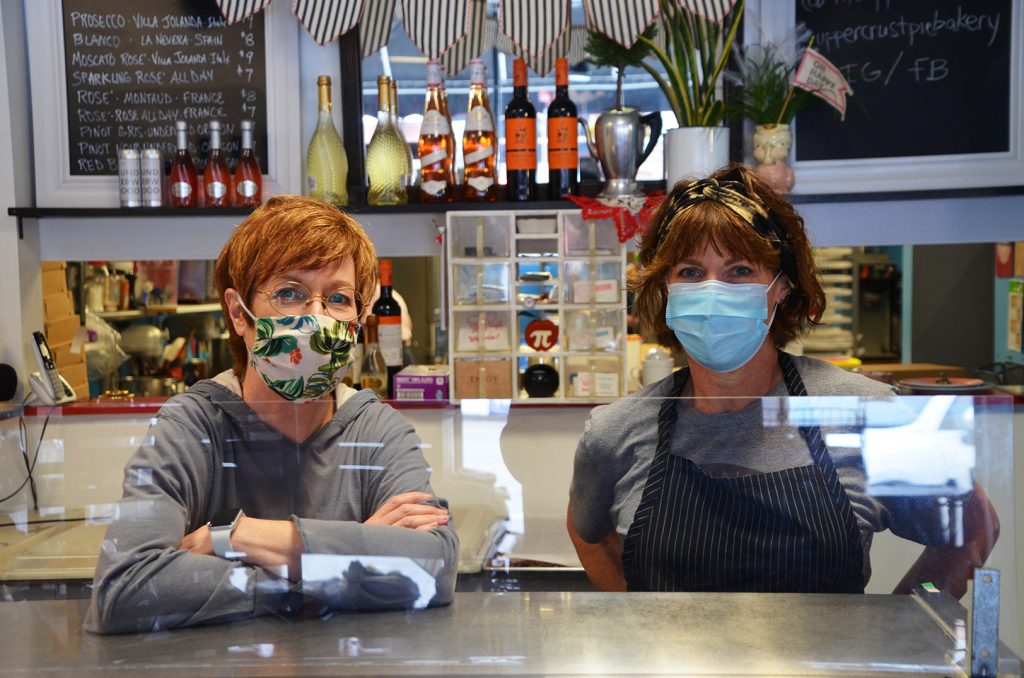
Elaine Van Buskirk and Jan Knobel, Upper Crust Pie Bakery
New business ingredients, new opportunities
The truth is, over the years, The Upper Crust has become a business built on social connectivity — a company baked into occasions like family celebrations and slices of pie shared between old friends or coworkers out for a late afternoon meeting, she said.
“We’ve eliminated that now. There will be no in-store access at this point,” Knobel said, predicting the store’s quaint setup of small tables will be the final piece of the pre-pandemic business that’s restored.
While the collective response to the COVID-19 crisis can rob small businesses of sales and face-to-face interactions with customers, it can’t steal their ability to reach them in new ways, she added, noting to be a baker is to also be an expert in creating personal touches and willing to occasionally adjust a recipe.
“Our mission statement is to produce pies and cookies as good as our grandma did — and hopefully even a little better,” she snickered. “We are continuing to make a product that is from scratch, individually prepared. … The opportunity [here] would be looking at other ways we could get our product to the customer.”
Hence Knobel’s decision to launch a pop-up experience, which now sees customers picking up orders from the bakery’s contactless delivery window on Fridays and Saturdays, she said, noting even bigger shifts could be on the way for The Upper Crust.
“It seems like there is possibly a demand for folks to take a product and bake it in their home. Maybe we want to look at take-and-bake type of goods, whereas we’ve never done that,” she said.
“We’re really, really, really looking forward to seeing people in our shop enjoying our pie and enjoying life once again.”
Click here to place an order with The Upper Crust.
Conversations about shifting the bakery’s product offerings are ongoing as the store resumes operations, Knoble added.
“There’s opportunity for us to expand,” she said. “We are so grateful for the support of the community and it’s just beyond anything that we expected.”
Keep reading after the photo gallery.
Survival scramble to sugar rush
The financial impact of a shift in sales strategy is another weight on Knobel’s shoulders and is shared by the team at 1900 Barker — a Lawrence-based bakery, experiencing a nearly identical scenario to The Upper Crust.
“Our space is really small and if we were told that we could be at 50 percent occupancy, I think that would actually be harder and more detrimental to business,” added Taylor Petrehn, owner and executive baker at 1900 Barker which has steadily leaned on the support of curbside service via a bakery window since the pandemic began.
“I think the curbside pickup thing — for us — is what it’s gonna look like for a little while. … We were able to get approved for [the Paycheck Protection Program] and that will be a huge assistance to do all of this and just offer a little bit more security financially,” he said, noting that attempting a quick return to normal could jeopardize the steady sales 1900 Barker has maintained — which also provided an avenue to make three additional hires amid COVID-19.
“We had to scramble to create a whole new business model overnight. That was a rush and a challenge and it has proven to be really successful,” he said.
Click here to place an order with 1900 Barker.
Both bakeries are ultimately taking a day-by-day approach to staying afloat.
“The financial piece of it is probably the biggest challenge,” Knobel said. “There’s always an expense and it’s just going to be a little bit of a balance and probably a pretty good learning curve.”
Ensuring opportunities for customers to continue getting the same product and service they’ve become used to are key to surviving the pandemic, both Knboel and Petrehen said.
“We can always look back historically at what we did this time last year to kind of give us a gauge as to how much we can maybe expect to sell this year. But our setup is so different now. And the [Overland Park] Farmers’ Market is not sitting right behind us this summer and our neighbors on either side of us are not open,” Knobel said.
“We’re going to really pay a lot of attention to the customers, and if they’re requesting certain things, we want to listen to that and perhaps see if we can’t pivot our business a bit to accommodate what the new demand might be.”
This story is possible thanks to support from the Ewing Marion Kauffman Foundation, a private, nonpartisan foundation that works together with communities in education and entrepreneurship to create uncommon solutions and empower people to shape their futures and be successful.
For more information, visit www.kauffman.org and connect at www.twitter.com/kauffmanfdn and www.facebook.com/kauffmanfdn




